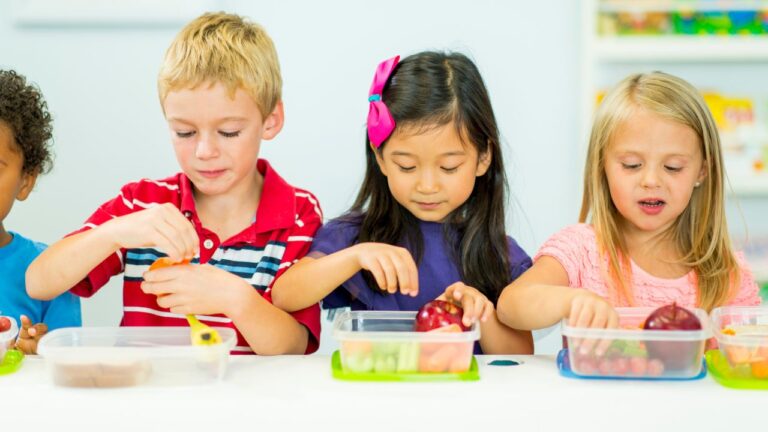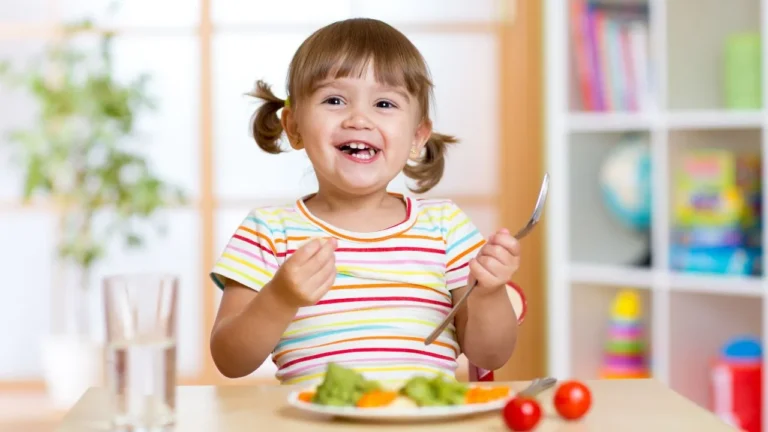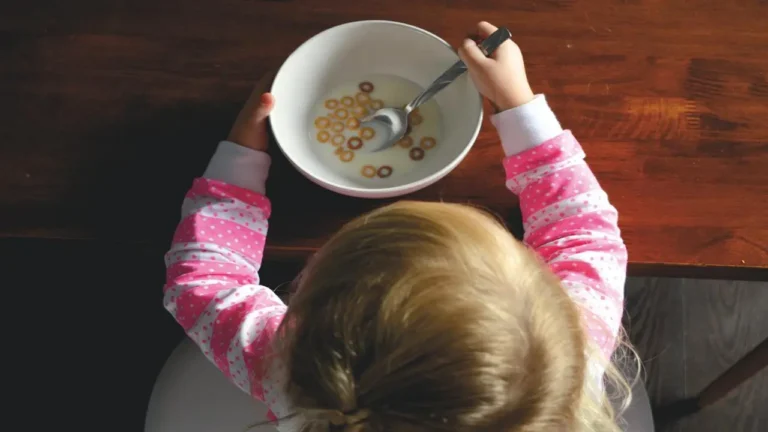Hiding Vegetables: A Clever Trick or an Epic Idea?

Struggling to get your child to eat vegetables? You’re not alone. Have you tried hiding vegetables? Many parents have faced the battle of getting their kids to eat those green and healthy foods, only to end up with untouched plates and a lot of frustration.
Getting children to eat vegetables can feel like an impossible task. They often turn up their noses at anything green, which makes mealtime a constant struggle and leaves parents worried about their kids’ nutrition.
Picture this: You’ve cooked a healthy meal, and your child refuses to eat it because of the visible veggies. This common scenario leads to stress and worries about whether your child is getting the nutrients they need.
Enter the strategy of hiding vegetables in kids’ foods. By sneaking veggies into dishes they already love, like blending spinach into smoothies or mixing zucchini into muffins, you can ensure they get their nutrients without the fight.
But is this sneaky approach effective and healthy in the long run? Let’s dive into the pros and cons of hiding vegetables to find out if it’s a smart solution for your family.

The Upside: Less Stress, More Nutrients
Your Mealtime Struggles, Solved!
Oh, the joys of mealtime with little ones – it can feel like a rollercoaster ride, can’t it? One minute they’re happily munching away, and the next, the dinner table transforms into a full-blown vegetable war zone. Trust me, I’ve been there, mama.
Those dinnertime struggles are all too real and can leave you feeling like you’ve run a parenting marathon by the time the dishes are cleared.
But fear not, my fellow parent warriors, because I’ve got some tricks up my sleeve to help you navigate this veggie-filled battlefield. It’s time to wave goodbye to the endless negotiations and temper tantrums, and hello to harmonious, veggie-packed meals that’ll have your kiddos asking for seconds.
First things first, let’s address the elephant in the room – kids and their aversion to anything green, leafy, or remotely resembling a plant. It’s not that they’re trying to be difficult; their taste buds are just wired a bit differently.
But that doesn’t mean we have to surrender to the chicken nugget and fry routine. With a little creativity and a whole lot of patience, we can turn our picky eaters into veggie-loving champions.
Here’s your secret weapon arsenal in Hiding Vegetables
1. Stealth Mode: If your little one is particularly wary of certain vegetables, try sneaking them into dishes they already love. Grate carrots into the pasta sauce, blend spinach into a smoothie or bake zucchini into the muffins. They’ll be none the wiser, and you’ll be one step closer to a balanced plate.
2. Dip It Good: Let’s face it, veggies can be a tough sell on their own. Offer your kids a variety of dips, sauces, or spreads that they can use to jazz up their greens and make the experience more appealing. Ranch, hummus, or even a homemade cheese sauce can work wonders.
3. Presentation is Key: Turn mealtime into a playful experience by cutting veggies into fun shapes, creating colorful veggie-based art on their plates, or even hosting a “try a new veggie” challenge with small rewards. When it’s visually appealing, they’re more likely to give it a go.
4. Lead by Example: Children are natural mimics, so make sure you’re setting a good example by enthusiastically enjoying your veggies at the dinner table. The more they see you relishing that roasted broccoli, the more likely they’ll be to follow suit.
5. Involve Them in the Process: Get your kids involved in the cooking process. Let them help wash, chop, or even pick out new veggie options at the grocery store. When they have a hand in preparing the meal, they’re more invested in trying it.
6. Persistence is Power: It can take up to 15 tries before a child will accept a new food, so don’t get discouraged if they initially turn up their nose. Keep offering those veggies, and eventually, they’ll come around. Slow and steady wins the race, my friends.
Every child is different, and what works for one family might not work for another. The key is to be patient, and creative, and keep an open mind. With a little persistence and a whole lot of love, you can transform your little ones into veggie-loving champions in no time. Mealtime battles, be gone!
Amping Up the Nutrient Factor
Nutrition experts often remind us that essential elements, or vital nutrients, are crucial for a child’s growth and development. When you hide vegetables in children’s meals, you’re ticking off a lot of boxes in the nutrition checklist.
Some parents even level up this approach by substituting added sugars with healthier options like fruit purees. Suddenly, those muffins are not just delicious; they’re nutritious!
How To Hide Vegetables In School Lunches
Getting your child to eat vegetables can feel like an uphill battle, especially when it comes to packing school lunches. Fortunately, there are clever ways to sneak in those vital nutrients without your kids noticing.
Here’s how you can make it work:
Sneaky Veggie Techniques
1. Blend and Puree: Use a food processor to blend vegetables like carrots, zucchini, or spinach into sauces and soups. This works great for pasta sauces, where the veggies blend seamlessly with the tomato base.
2. Hide in Baked Goods: Incorporate finely grated vegetables into muffins, bread, or pancakes. Zucchini and carrots are perfect for this and add moisture to the baked goods without altering the taste.
3. Mix with Strong Flavors: Combine mild-tasting vegetables with strong-flavored foods. For example, mix finely chopped vegetables into cheesy casseroles, meatballs, or burgers. The strong flavors help mask the taste of the vegetables..
4. Make Veggie-Based Snacks: Create snacks that naturally include vegetables. Try making broccoli bites or pea fritters, which are both delicious and packed with hidden veggies.
Creative Recipes to Try
By using these techniques, you can ensure that your child gets the necessary nutrients without the typical mealtime struggles. Plus, involving kids in the preparation process can increase their willingness to try new foods.
Remember, persistence is key, and over time, kids may become more open to eating vegetables in their natural state.
But Hold On, There Are Some Negatives!
The Missed Educational Moments
Teaching kids to appreciate healthy foods is a goal we should all aim for. If we consistently camouflage veggies in their favorite dishes, we’re missing a prime opportunity to educate children about nutritious choices.
Sure, in the short term, we’ve solved the problem. But have we taught them anything about making wholesome meal choices?
A Trust Tumble Waiting to Happen
Imagine the day your child discovers you’ve been pulling a fast one by hiding veggies. Not the best scenario, right? Trust between a parent and child is fragile, and this strategy can put it at risk. It’s almost like setting up a tiny betrayal, teaching kids to question, “If they were hiding this, what else might they be hiding?

Should You Hide Veggies In Your Child’s Food?
Getting kids to eat their vegetables can be a real challenge, and many parents wonder if hiding veggies in their child’s food is the right approach. While sneaking vegetables into meals might seem like a clever way to boost your child’s nutrient intake, this tactic has its pros and cons.
Short-Term Benefits vs. Long-Term Habits
In the short term, hiding vegetables can ensure your child gets the necessary nutrients. Mixing pureed carrots into spaghetti sauce or adding spinach to smoothies can increase their vitamin intake without the battle at the dinner table.
However, experts warn that this approach might not help children develop a genuine appreciation for vegetables in the long run. Children need repeated exposure to different tastes, textures, and forms of vegetables to develop a liking for them.
Building Trust and Positive Food Relationships
One significant drawback of hiding vegetables is the potential erosion of trust between parent and child. If children discover they’ve been tricked into eating something they dislike, it could lead to distrust not only regarding food but also in other areas of their relationship with their parents.
Open and honest communication about what’s in their food helps build a positive relationship with food and ensures kids feel respected and included in their eating choices.
Better Strategies for Encouraging Vegetable Consumption
Instead of hiding vegetables, consider integrating them into meals in a transparent way. Involve your kids in meal preparation, allowing them to see and understand what goes into their food.
Offer vegetables regularly and in various forms—raw, steamed, roasted, or grilled—to help them become familiar with these foods. Encouraging a pressure-free environment where kids can explore vegetables without being forced to eat them can lead to better acceptance over time.
Final Thoughts
While hiding vegetables might provide a quick fix, fostering a long-term appreciation for healthy foods requires patience and creativity. By openly incorporating vegetables into meals and involving kids in the cooking process, you can help them develop healthy eating habits that will last a lifetime.
If you’re struggling with a picky eater, remember that consistency and positive exposure are key to building a balanced diet for your child.






